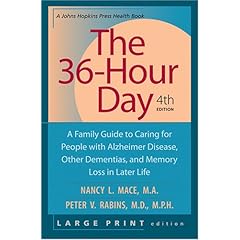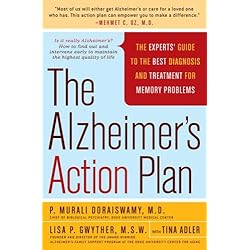Test Your Memory (TYM) for Alzheimer's or Dementia in Five Minutes (#1 June, July, August, September)
A new cognitive test for detecting Alzheimer's disease is quicker and more accurate than many current tests, and could help diagnose early Alzheimer's, dementia, or mild cognitive impairment.
To continue reading
go here.
Dementia and the Eight Types of Dementia
Dementia is a an illness that usually occurs slowly over time, and usually includes a progressive state of deterioration. The earliest signs of dementia are usually memory problems, confusion, and changes in the way a person behaves and communicates.
To continue reading
go here.
Five Ways to Keep Alzheimer's Away
A recently released study showed that regular exercise is one of the best ways to reduce your risk of dementia and can help slow progression of Alzheimer's disease. Less well known is the fact that if you have a big belly in middle age the chances that you could suffer from dementia are tripled.
To continue reading
go here.
The Combination of Aricept and Namenda Helps Slow the Rate of Decline in Alzheimer's Patients
"The results of this study should change the way we treat patients with Alzheimer's disease. Cholinesterase inhibitors are approved for use in mild to moderate dementia, while memantine has been approved for advanced dementia. But it looks like there is an advantage in prescribing both drugs as initial treatment."--John Growdon, MD
To continue reading
go here.
A Simple Three Minute Test Can Detect the Earliest Stage of Alzheimer's Disease
The study shows that the combination of a very brief three-minute cognitive screening test, called the Mini-Cog (MC), with a Functional Activities Questionnaire (FAQ) -- administered to a family member or friend -- could accurately identify individuals with MCI and undiagnosed dementia.
To continue reading
go here.
Subscribe to The Alzheimer's Reading Room--via Email
 Bob DeMarco is the editor of the Alzheimer's Reading Room and an Alzheimer's caregiver. The Alzheimer's Reading Room is the number one website on the Internet for news, advice, and insight into Alzheimer's disease. Bob has written more than 800 articles with more than 18,000 links on the Internet. Bob resides in Delray Beach, FL.
Bob DeMarco is the editor of the Alzheimer's Reading Room and an Alzheimer's caregiver. The Alzheimer's Reading Room is the number one website on the Internet for news, advice, and insight into Alzheimer's disease. Bob has written more than 800 articles with more than 18,000 links on the Internet. Bob resides in Delray Beach, FL.
Popular articles on the Alzheimer's Reading Room
The 36-Hour Day: A Family Guide to Caring for People with Alzheimer Disease, Dementia, and Memory Loss 
Original content Bob DeMarco, Alzheimer's Reading Room








